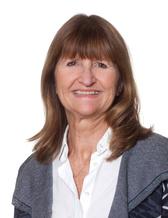An increasing proportion of women aged 40 and over in Sweden and Denmark are giving birth. Nevertheless, over a recent 10-year period, the need for assisted reproduction for women over 40 in Scandinavia has doubled, a study led by University of Gothenburg researchers shows.
The purpose of the study, published in the journal Acta Obstetricia et Gynecologica Scandinavica, was to provide a descriptive and comparative account of reproductive patterns in women in their 40s over a 10-year period, 2008-18, in Sweden, Norway, and Denmark.
This cross-sectional study was based on register data on all women aged 40-49 in Denmark, Norway and Sweden: a total of 1.5 million individuals. Childbirth with or without assisted reproduction, hormonal contraceptive use, and induced abortions were studied.
The results show an increase in the proportion of women aged 40-44 obtaining hormone-based contraceptives, usually hormonal IUDs. In Denmark, the proportion rose from 24 to 31 percent of women, in Sweden from 27 to 30 percent, and in Norway from 22 to 24.
Doubled rate of assisted reproduction
At the same time, there was a continuous rise in births among 40-44-year-olds in Denmark and Sweden: in Denmark from 9.5 to 12 births annually per 1000 women and in Sweden from 11.7 to 14.3. The rate in Norway was stable at approximately 11 births per 1000 women and year in this 10-year study period.
The proportion of women aged 40-49 who underwent assisted reproduction doubled during the period. In Denmark the rise was from 0.71 to 1.71 per 1000 women and year, in Sweden from 0.43 to 0.81, and in Norway from 0.25 to 0.53.
Assisted fertilization usually involves insemination, in which sperm are handled outside the body, or in vitro fertilization (IVF), where both the sperm and the egg are handled outside the body.
Regarding induced abortions in the 40-49 age group, the largest increase in the 10-year period - from 7.7 to 8.1 induced abortions annually per 1000 - was among Swedish women.

Knowledge of female fertility
PhD, midwife Ingela Lindh was responsible for the study. A researcher in obstetrics and gynecology at Sahlgrenska Academy, University of Gothenburg, she heads the midwife clinic in Public Health, Region Västra Götaland.
"The results confirm that more and more women are postponing their parenthood - and it's a trend observed in most of Europe. Today, many women want to finish their studies and get established in the labor market before having their first child, and this may result in an increased demand for assisted reproductive treatment due to an increased rate of subfertility with advanced age," she says.
Modern contraceptives, especially highly effective, long-acting ones such as hormonal intrauterine devices (IUDs), provide ample scope to plan a desired pregnancy. Simultaneously, births resulting from assisted reproductive technology doubled in the three countries.
"We also see that more first-time mothers than before are seeking help at fertility clinics. Women may be unaware that fertility declines with age. The study provides valuable information for improving women's knowledge of their own fertility," Lindh concludes.
Title: Reproductive changes among women in their 40s: A cross‐sectional study






